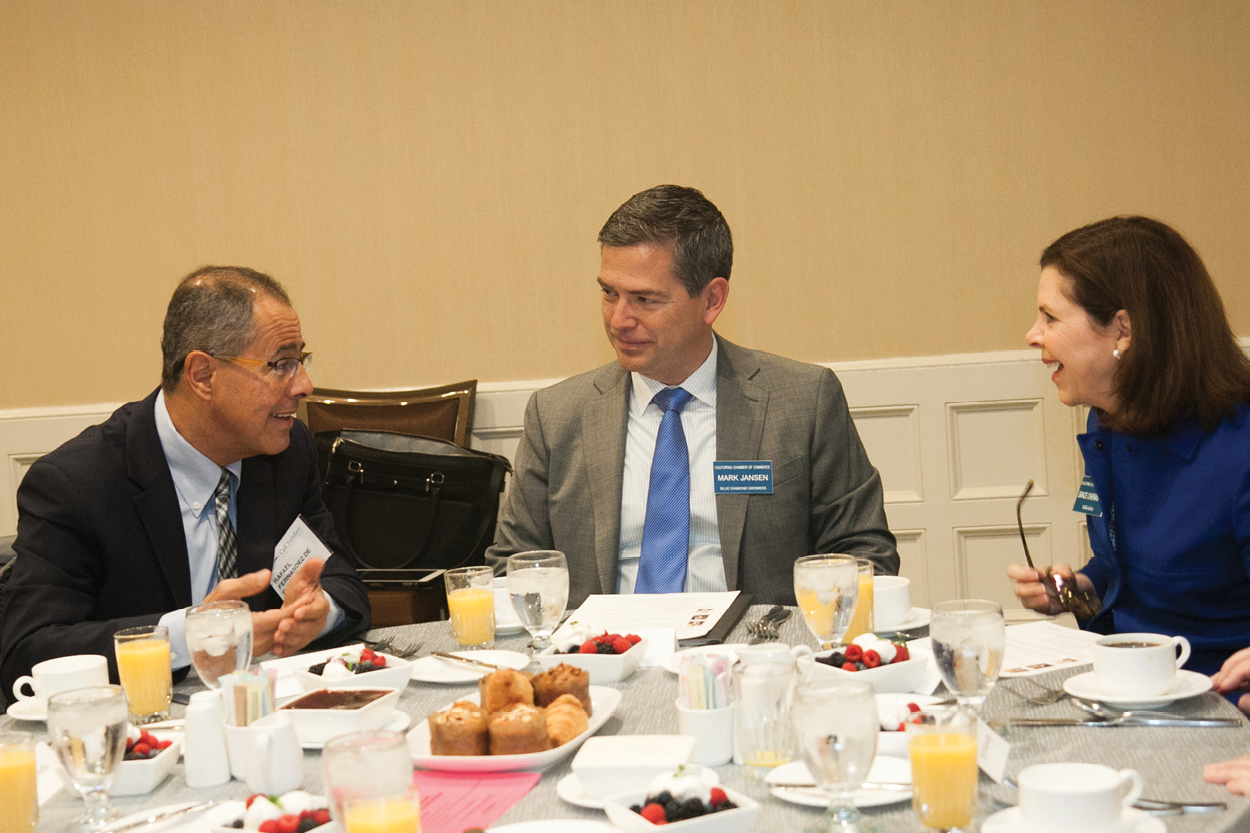The campaign to be the next President of Mexico could be a close one, the director of the Center for U.S.-Mexican Studies at the University of California, San Diego told a California Chamber of Commerce breakfast audience last week.
“So far, it seems that this is going to be a very competitive election,” Professor Rafael Fernández de Castro said at the March 2 international breakfast meeting sponsored by Blue Diamond Growers.

Leading Candidates
Current polling, Fernández de Castro explained, shows the candidate from the leftist National Regeneration Movement (MORENA Party), Andres Manual Lopez Obrador, with support in the 35% range.
That is 7 points above the leading candidate from the conservative National Action Party (PAN), Ricardo Anaya, with 28%.
Next is Jose Antonio Meade of the Institutional Revolutionary Party (PRI) with about 20% support.
Any of the three leading candidates could win, Fernández de Castro said, pointing out that in Mexico it is possible for a candidate to win the presidency with just a little more than 30% of the vote.
Fernández de Castro served as foreign policy adviser to former Mexico President Felipe Calderón of the PAN party, which led the Mexican government from 2006 to 2012. Current President Enrique Peña Nieto of the PRI won in 2012 with 38.2% of the vote, versus Lopez Obrador, who finished with 31.6% of the vote. This is Lopez Obrador’s third try for the presidency.
Calderón’s predecessor, Vicente Fox, also was from the PAN party. From 1929 to 2000, the PRI was in power.
Lopez Obrador lost in his first try at the presidency in 2006 due to a single large mistake, according to Fernández de Castro: Lopez Obrador failed to show up for the first presidential debate that year.
In the current election cycle, however, Lopez Obrador is standing out as someone who could stand up to President Donald R. Trump, Fernández de Castro commented.
The official campaign season will start at the end of March, Fernández de Castro said, and will include three presidential debates. The election will take place on July 1, with the inauguration being held on December 1. Mexico presidents serve for single, six-year terms.
A fact sheet on the 2018 Mexico presidential election is available at calchamber.com/mexico.
NAFTA
Turning his attention to the North American Free Trade Agreement (NAFTA), Fernández de Castro said Mexico and Canada negotiators were very well-prepared for discussions, having just negotiated the Trans-Pacific Partnership (TPP). President Trump formally withdrew the United States from the TPP on his fourth day in office. The remaining 11 countries reached agreement on “core elements” of a partnership built on the bases of the TPP at the end of 2017 and signed the agreement on March 8.
Fernández de Castro pointed out Mexican and Canadian negotiators are taking their time with the NAFTA talks, hoping that as time passes, protectionist voices in the United States will become less powerful than the agreement’s supporters. He noted that NAFTA is backed by nearly every business organization in the United States and represents a rules-based trilateral relationship, providing order in trade dealings between the United States, Canada and Mexico.
In response to a question, Fernández de Castro predicted that if the Trump administration rejects NAFTA, the loss will create uncertainty for the Mexican economy, at least in the short term. Obtaining some forms of energy will become very complicated without NAFTA, said Fernández de Castro, as nearly all of Mexico’s natural gas supply comes from the United States, mostly Texas.
Immigration
The tenor of public discussion in the United States about immigration has had an impact, Fernández de Castro said. He called the United States a very tolerant society that has been the “world example” of the “best country” to go to for assimilating immigrants.
Over the last eight years, there has been zero or negative migration to the United States from Mexico. From a peak in 2005, when about 600,000 people came from Mexico, last year just 240,000 people came to the United States on visas, including himself, Fernández de Castro said.

